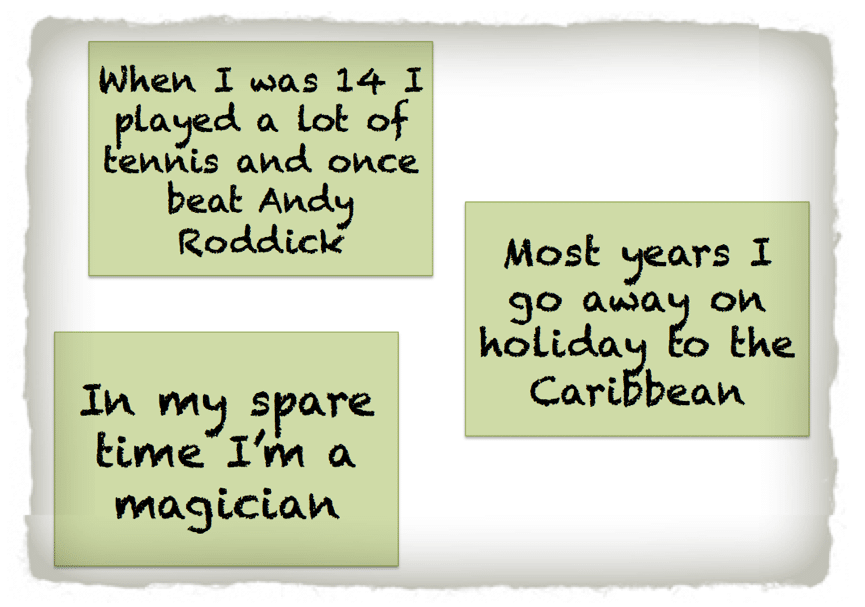How Well Do We Know Each Other gets the group working together very quickly as well as having a few laughs.
It's perfect if you are looking for an icebreaker for people who already know each other.
Participants have the opportunity to be a creative as well as show off about themselves.
Some cultures might find the showing off part a little off-putting but don't we all need an opportunity to brag a little every now and then?
Personally I think it's good for the soul to open yourself up to being impressed by others achievements.
Objectives
- To have some fun at the beginning of a workshop session using creative icebreaker questions.
- To raise the temperature and noise levels.
- To get to each other better.
- To develop some fun talking points that can be referred to during the rest of the event.
What is it?
- An informal activity that gets a group working together very quickly.
- Icebreaker questions are fun to do while at the same time enabling a group to get to know each other better and build relationships.
- Non-threatening and not demanding – ideal for the reticent as well as the assertive.
When Would You Use It?
- Ideal for situations where you are mobilizing a team and you want to quickly promote an informal, relaxed and open atmosphere that will be conducive to collaborative work.
- It’s also suitable for teams that already know each other but where you are looking for a vehicle to enhance their collaboration, raise their interest or motivate them as a team.
- Works best in small groups of between five and eight people though can work for larger groups but the time taken extends proportionately.
Are There Any Rules?
- There’s an optional competitive element – be sure that all group members are happy to keep scores – otherwise delete the scoring element.
Resources Required
- A willing group of people.
- Post-it notes and marker pens for each participant (at least one each plus a few extra spares if required).
- Tables and chairs.
Process
-
The Facilitator asks the Participants to take three post-it notes and write three statements about themselves, things no-one here knows about you, of which only one is true, e.g.
- When I was 14 I played a lot of tennis and once beat Roger Federer.
- Most years I go away on holiday to the Caribbean.
- In my spare time I’m a magician.
-
Each Participant takes it turns to present their three statements to the other team members at their table but do not reveal which is true/false.
-
The other Participants each have one vote to select which of your three statements they consider is true.
-
If they get it right, they score a point. If they don’t, then you get a point. Keep a record of your scores. The highest score wins!
Secret Sauce
- It helps to place the three post-its on the table for consideration by the others.
- Let everyone make their selection before revealing which are false – ending up with the true statement.
- Ideally, all three statements should appear equally plausible to make the selections challenging!

